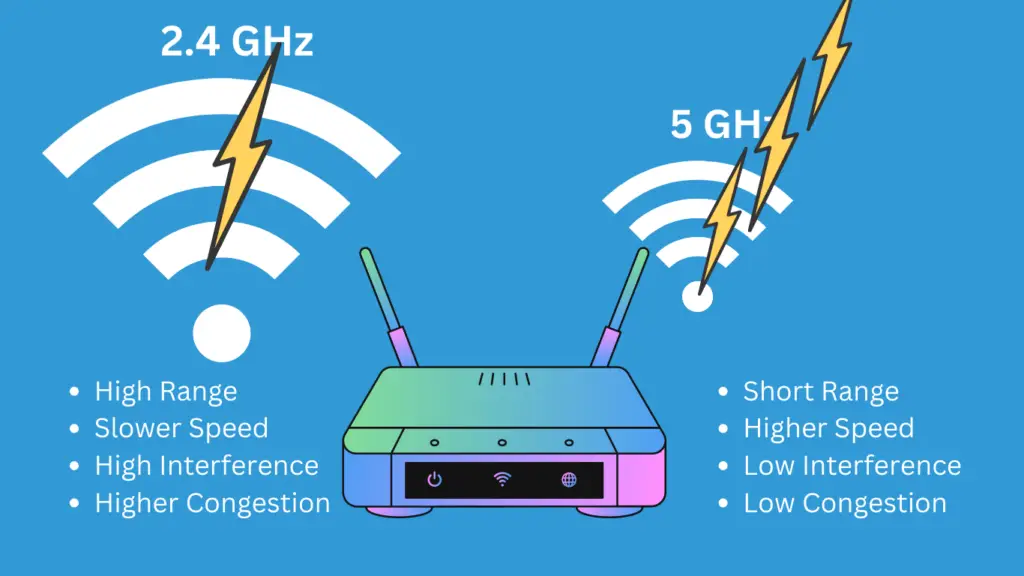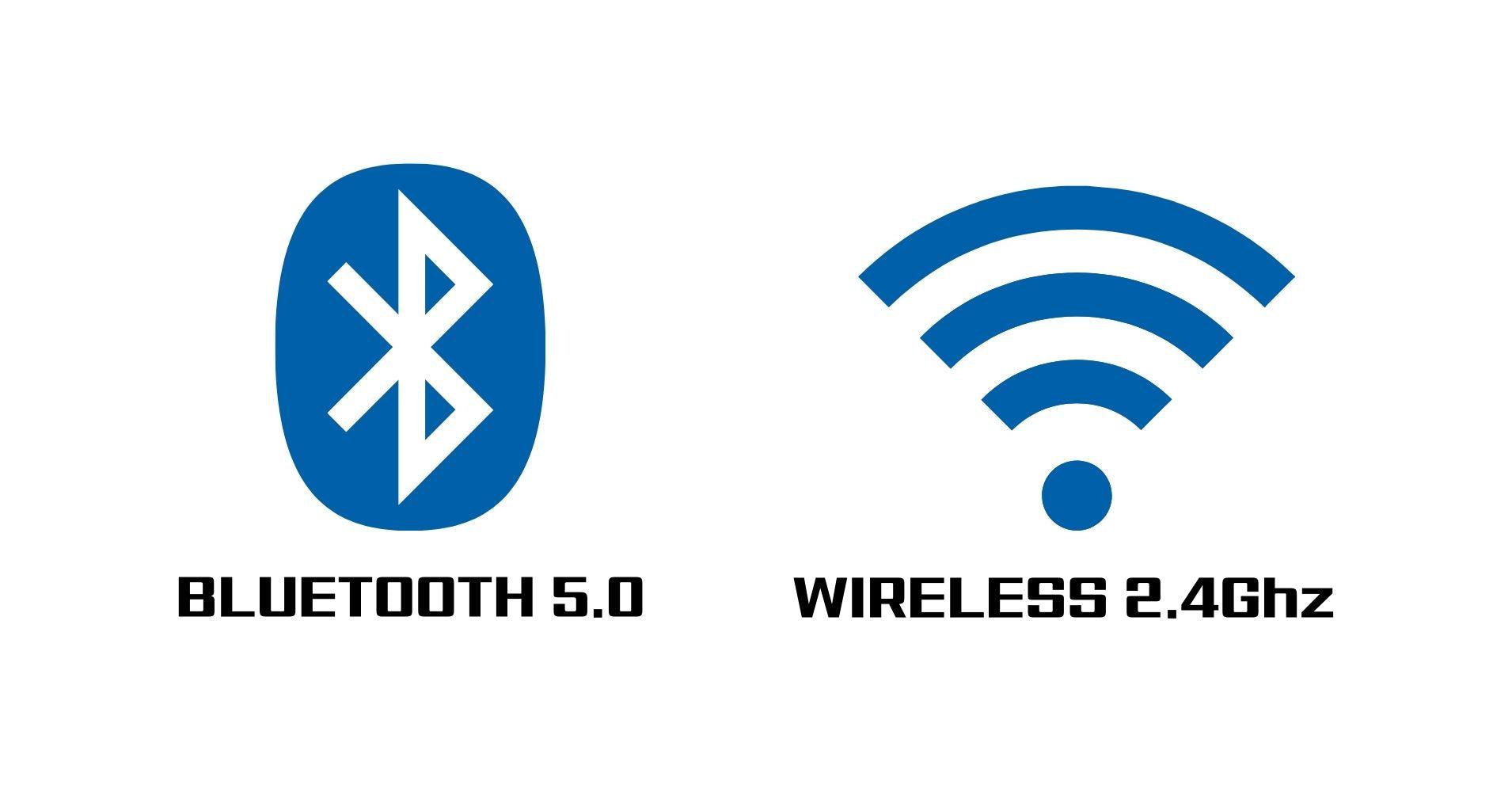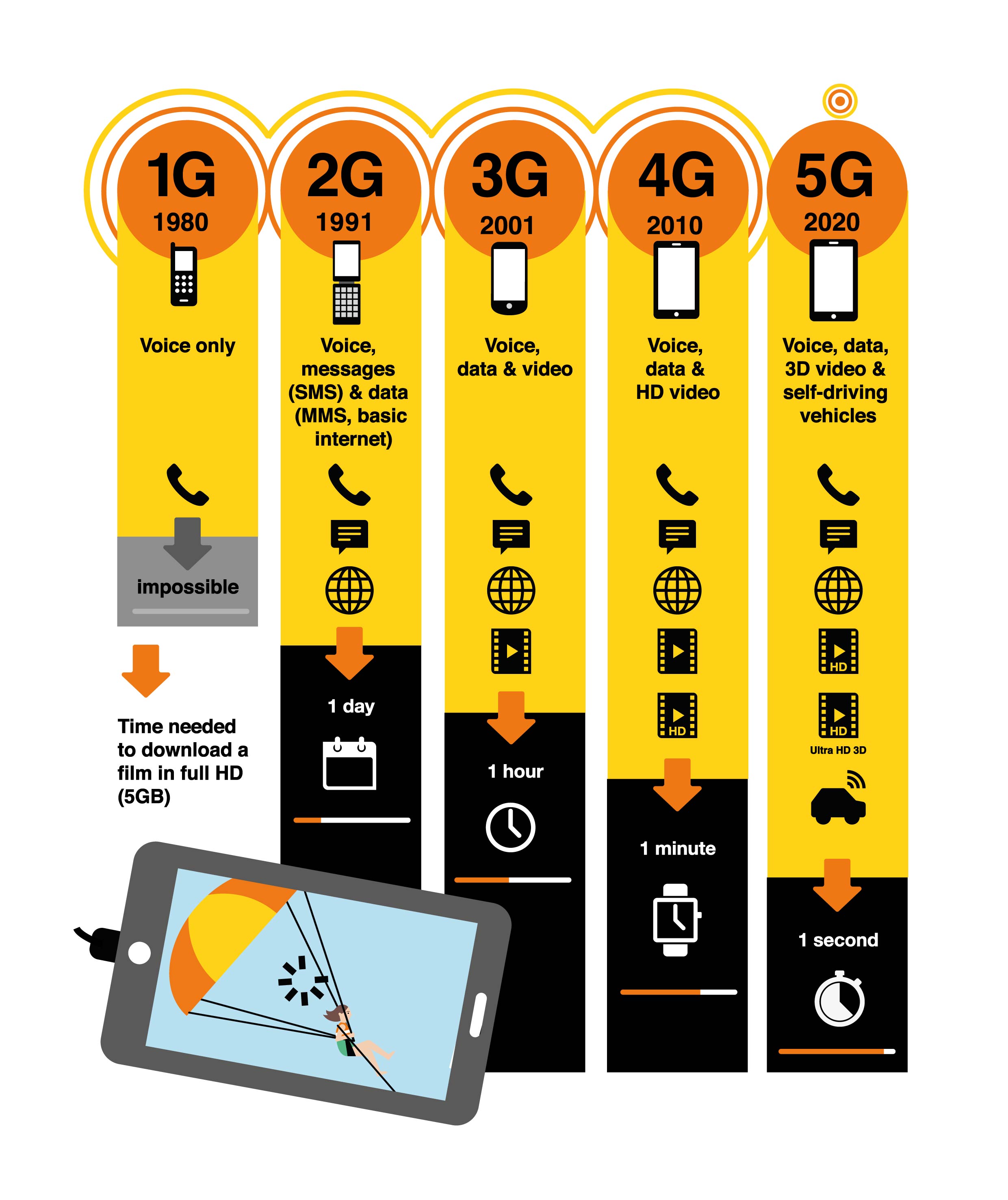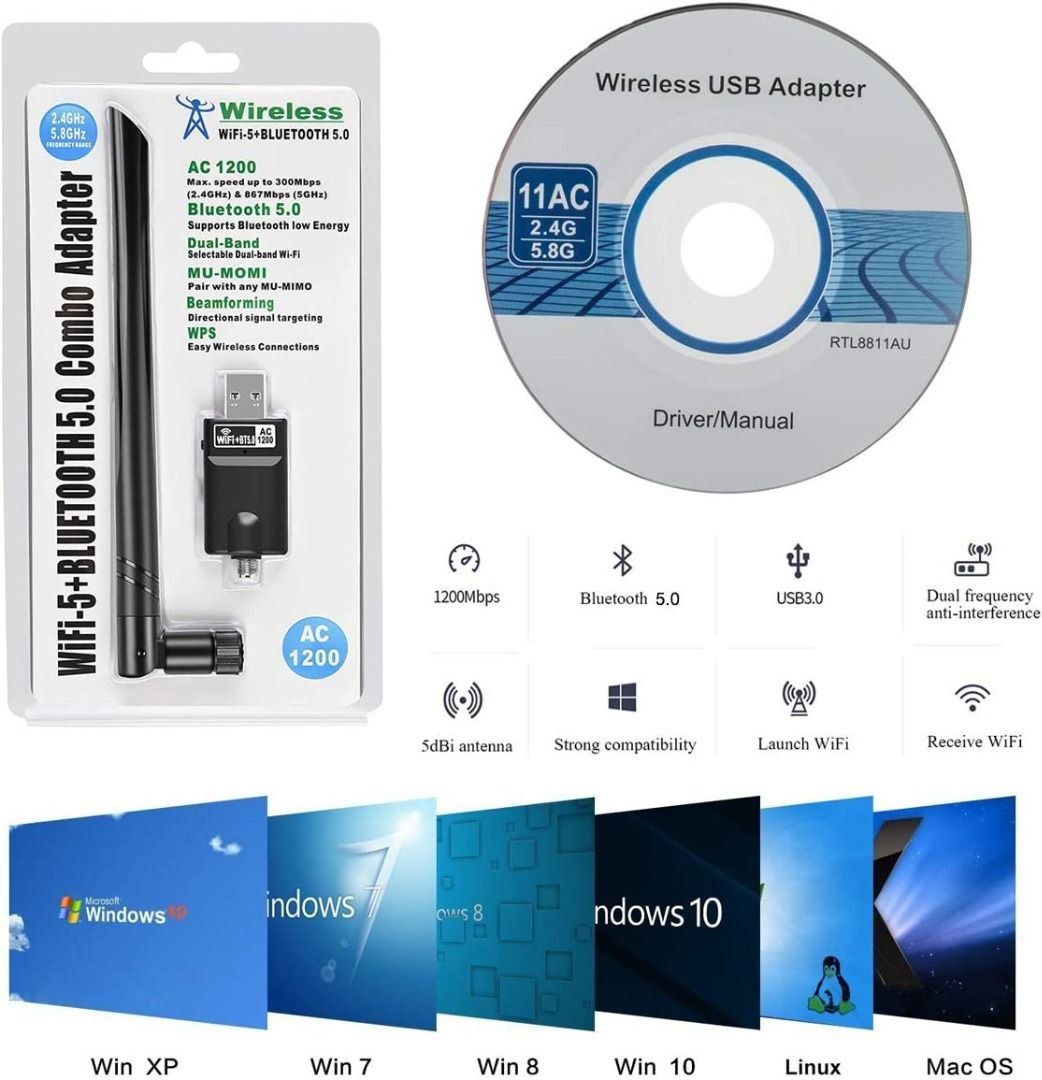Heartwarming Tips About Is 2.4G Faster Than Bluetooth

The Great Wireless Showdown
1. Understanding the Frequencies
Alright, let's dive into a topic that might seem a bit geeky, but it's actually super practical: which is faster, 2.4 GHz or Bluetooth? You've probably seen these terms plastered all over your gadgets, from wireless mice to headphones. But what do they actually mean, and more importantly, which one reigns supreme in the speed department? It's time to find out!
Think of 2.4 GHz and Bluetooth as two different roads on the wireless highway. Both operate on the 2.4 GHz frequency band, which is like a shared lane for wireless devices. The key difference lies in how they manage traffic and use that lane. It's all about efficiency, folks. So, just because they share a frequency doesn't automatically mean they're equally fast.
Before we get too deep, let's clarify a common misconception. The "2.4 GHz" we're talking about here in the context of things like wireless mice and keyboards isn't quite the same as the 2.4 GHz band on your Wi-Fi router. While they share the same frequency, they use different protocols and technologies. That wireless mouse isn't hopping onto your Wi-Fi network (hopefully!).
To illustrate the difference, imagine you're sending messages. One way is shouting it with megaphone (2.4G) and other one is whispering (Bluetooth) on each side of building, you can tell who's faster right? It also depend on how good the device receive and transmit message. Let's unravel this wireless mystery and see which one takes the speed crown! And trust me, the answer might surprise you.

What’s The Difference Between Wireless 2.4Ghz & Bluetooth 5.0
Speed Demons and Data Delivery
2. Decoding the Speed Factor
Now, let's get down to brass tacks: speed. In general, 2.4 GHz connections (when used in protocols designed for speed, like those in wireless mice and keyboards) tend to be faster than Bluetooth. This is because they're often optimized for low latency, meaning the time it takes for data to travel from your device to your computer is shorter. Think of it like this: a speedy courier delivering a package versus a leisurely stroll.
Bluetooth, on the other hand, prioritizes power efficiency and stability over raw speed. It's designed for devices that need to sip battery power, like headphones and smartwatches. While Bluetooth has certainly gotten faster over the years with newer versions (like Bluetooth 5.0 and beyond), it still typically lags behind dedicated 2.4 GHz connections in terms of sheer speed.
However, there's a crucial caveat: it's not always a black-and-white situation. The actual speed you experience can depend on a bunch of factors, including the specific devices you're using, the distance between them, and any interference in the environment. A high-quality Bluetooth device might perform better than a cheap, poorly designed 2.4 GHz device.
To paint a picture: Imagine 2.4G connection is like dedicated line, and Bluetooth is using a share line with low priority. But if the Bluetooth have latest technology and use high quality product, it can compete with 2.4G, even if they are share line. This is also depend on environment, if there are so many noise in the environment, both connection will perform badly. But in general, 2.4G still the best option for speed especially when come to gaming.

Technology Makes 5G Much More Powerful Than 4G
Why Latency Matters (Especially for Gamers!)
3. Latency
When we talk about "speed" in this context, we're often really talking about latency. Latency is the delay between when you perform an action (like clicking a mouse button) and when that action is registered by your computer. Lower latency means a more responsive and immediate feel, which is crucial for things like gaming and precise cursor movements.
For gamers, latency can be the difference between victory and defeat. A few milliseconds of lag can throw off your aim or delay your reaction time, leading to frustration and lost matches. That's why many gamers swear by wired connections or high-quality 2.4 GHz wireless devices designed for low latency.
Bluetooth, with its emphasis on power efficiency, often has higher latency than 2.4 GHz connections optimized for gaming. This isn't to say that Bluetooth is unusable for gaming, but it might not be the ideal choice for competitive or fast-paced games where every millisecond counts. Unless you're playing a turn-based strategy game, you might want to stick with a wired or 2.4 GHz connection for optimal performance.
Think of it as a race. 2.4G is like dedicated racing car to reach finishing line while Bluetooth is using a regular car. Bluetooth may be able to reach finishing line, but 2.4G can do it with blazing fast and less delays. So when it come to gaming, you really need the fastest response and minimal delay to be on top. If you plan to competitive games, don't rely on Bluetooth, 2.4G is your best friend here.

Beyond Speed
4. More Than Just Speed
Of course, speed isn't the only thing that matters. Bluetooth offers several advantages over 2.4 GHz, including wider compatibility, lower power consumption, and the ability to connect to multiple devices simultaneously. You can connect your Bluetooth headphones to your phone, tablet, and laptop without having to constantly pair and unpair them.
2.4 GHz connections, on the other hand, often require a dedicated dongle or receiver. This can be a hassle if you're using a device with limited USB ports. Plus, those dongles are easy to lose! Bluetooth is generally more convenient for connecting to a variety of devices without the need for extra hardware. It's also generally more secure, with built-in encryption and authentication features.
Battery life is another crucial consideration. Bluetooth's low-power design means your wireless headphones or mouse will last much longer on a single charge compared to a 2.4 GHz device. If you're constantly on the go and don't want to worry about constantly recharging your devices, Bluetooth might be the better choice.
Ultimately, the best choice depends on your specific needs and priorities. If you're a gamer who demands the lowest possible latency, a 2.4 GHz connection is probably the way to go. But if you value convenience, compatibility, and long battery life, Bluetooth might be a better fit. Don't forget to factor in what you are doing, are you playing games, editing videos, or maybe doing graphic design? It all depend on what you need.

WiFi Dongle 1300Mbps, WiFiAdapter Mit Bluetooth 5.0 Sender Empfänger
So, Who Wins? It Depends!
5. The Verdict
Alright, let's wrap this up. Is 2.4 GHz faster than Bluetooth? The answer, as with most things in life, is "it depends." In general, 2.4 GHz connections (when optimized for speed) tend to offer lower latency and faster response times, making them ideal for gaming and other demanding applications. However, Bluetooth offers greater convenience, compatibility, and power efficiency.
Before buying a device, think about how you'll be using it. If you're a casual user who primarily browses the web and listens to music, Bluetooth will probably be more than adequate. But if you're a serious gamer or video editor who needs the fastest possible response times, a 2.4 GHz connection might be worth the extra hassle of a dongle.
Consider your needs, budget, and the specific devices you're comparing. Read reviews, compare specifications, and don't be afraid to experiment. The world of wireless technology is constantly evolving, so stay informed and choose the option that best meets your needs.
Think of it like choosing between a sports car and a hybrid. The sports car is faster and more responsive, but the hybrid is more fuel-efficient and practical for everyday use. Both have their strengths and weaknesses, and the best choice depends on your individual needs and preferences. Wireless technology is the same, it all depend what you are planning to do with it.

Frequently Asked Questions (FAQ)
6. Common Questions and Answers
Q: Will I notice a difference between 2.4 GHz and Bluetooth for everyday tasks like browsing the web or sending emails?A: Probably not. For most everyday tasks, the difference in speed is negligible. Bluetooth is generally more than fast enough for basic web browsing, email, and streaming music.
Q: Is Bluetooth 5.0 faster than older versions of Bluetooth?A: Yes, Bluetooth 5.0 and later versions offer significantly faster speeds and improved range compared to older versions like Bluetooth 4.0. However, even with these improvements, dedicated 2.4 GHz connections still often offer lower latency for specific applications like gaming.
Q: Can interference affect the speed and reliability of both 2.4 GHz and Bluetooth connections?A: Absolutely! Both 2.4 GHz and Bluetooth operate on the same frequency band, which means they can be susceptible to interference from other devices like Wi-Fi routers, microwaves, and even other Bluetooth devices. Minimizing interference can help improve the speed and reliability of both types of connections.